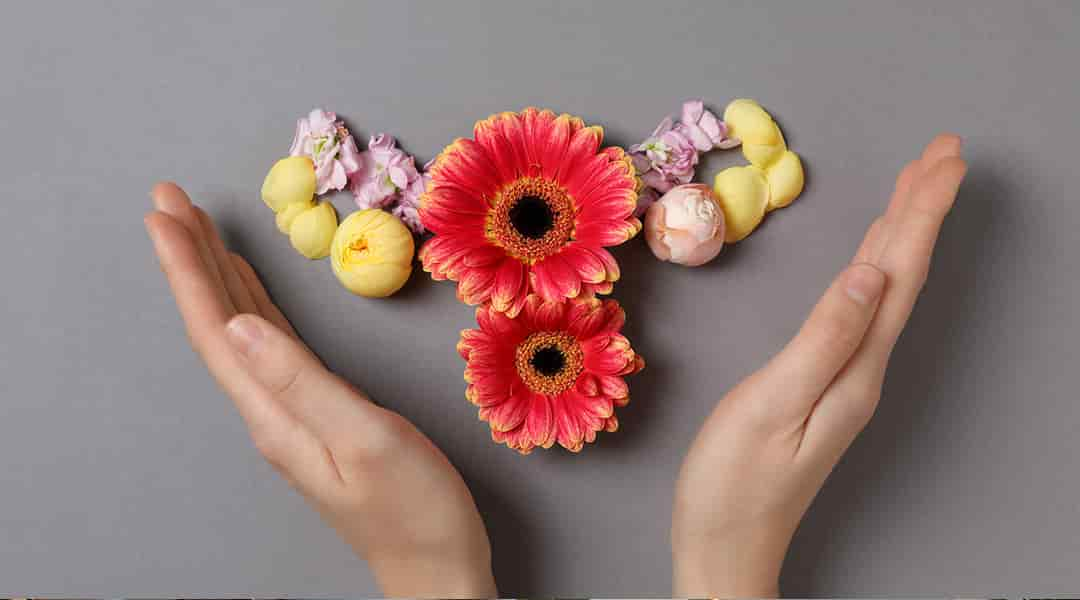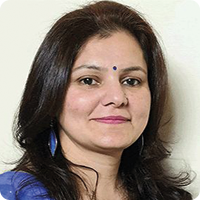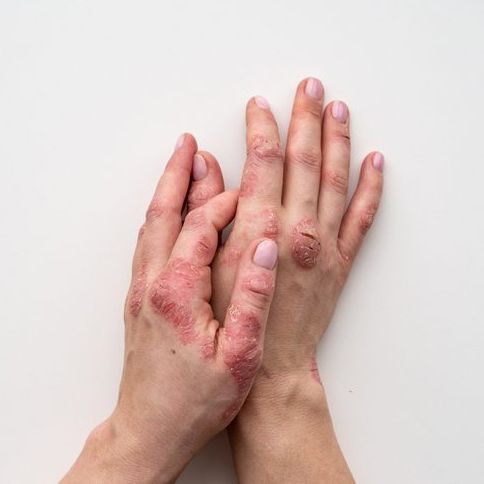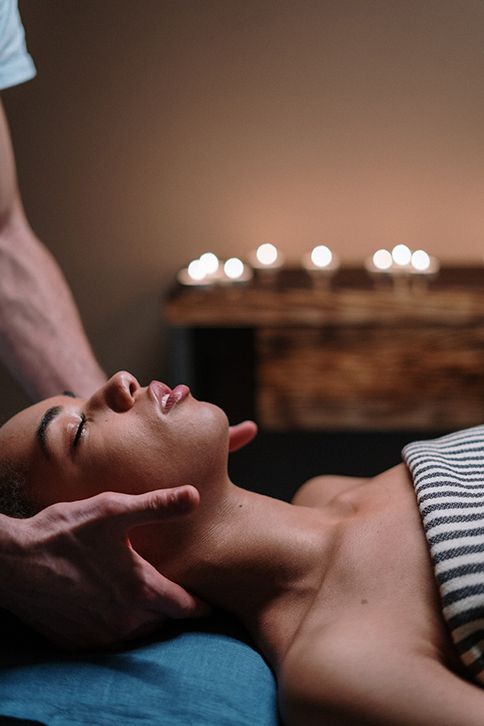From Menstruation to Menopause: How Ayurveda Empowers Women’s Health at Every Stage of Life
From Menstruation to Menopause: How Ayurveda Empowers Women’s Health at Every Stage of Life

As we approach International Women’s Day, a time to honor the strength, wisdom, and beauty of women, it is an ideal moment to reflect on the profound role that Ayurveda for women’s health plays in supporting well-being through every stage of life. Ayurveda, the ancient art of holistic wellness, offers a unique approach that nurtures the delicate balance of the body, mind, and spirit, ensuring women thrive in harmony with their natural rhythms.
At ASHAexperience, we understand that every stage of a woman’s life—from menstruation to fertility, and into menopause—is marked by its own set of challenges. Whether it’s dealing with PMS, managing the complexities of fertility, or embracing the changes brought on by menopause, holistic women’s health solutions rooted in Ayurveda provide a nurturing and empowering path. Let us explore how this ancient wisdom supports hormonal balance Ayurveda and overall vitality through each phase, allowing you to embrace your inner strength and live in harmony with your body.
Menstrual Health: Finding Harmony in Your Cycle
A woman’s menstrual cycle is a reflection of her inner balance and vitality. Yet, many women face challenges such as PMS, cramps, and irregular cycles, which can disrupt both physical and emotional well-being. Ayurvedic approach to menstruation offers a gentle yet powerful way to restore balance, ensuring that each cycle is experienced with greater ease and harmony.
Practical Tips:
1. Ayurvedic Remedies for Women: Herbs like Ashwagandha, Shatavari, and Turmeric are celebrated in Ayurveda for their ability to calm Vata and Pitta doshas, easing cramps, reducing bloating, and alleviating emotional turbulence. These can be taken as herbal teas or supplements to support menstrual well-being.
2. Nourishing Self-Care: Abhyanga, or self-massage with warm, soothing oils like sesame or almond oil, enhances circulation and relaxes the body, reducing menstrual discomfort.
3. Ayurvedic Diet for Hormonal Health: Cooling, hydrating foods such as leafy greens, cucumbers, and melons help balance Pitta. Avoid processed foods, caffeine, and sugar, which can disrupt hormonal balance Ayurveda and exacerbate mood swings.
Imagine a life where menstrual discomfort no longer interrupts your flow—a life where your cycle arrives gently, with ease and grace, allowing you to remain grounded and calm.
Fertility Support: Nurturing the Sacred Journey
Fertility is a deeply personal journey, and Ayurveda treats it as a holistic process that involves nourishing the body’s tissues, balancing hormones, and promoting mental and emotional well-being. Ayurveda for fertility believes that when a woman is in harmony with her mind, body, and spirit, her reproductive health flourishes naturally.
Practical Tips:
1. Ayurvedic Remedies for Women: Incorporate fertility-enhancing herbs such as Shatavari, Guduchi, and Gokshura into your daily routine. These herbs help in hormonal balance Ayurveda, strengthen reproductive organs, and enhance overall vitality.
2. Ayurvedic Diet for Hormonal Health: Ghee, whole grains, and nuts provide healthy fats essential for reproductive wellness. Leafy greens and antioxidant-rich berries help detoxify the body, creating a nurturing environment for conception.
3. Mind-Body Practices: Engage in pranayama (breathing exercises) and meditation to reduce stress. A calm, balanced mind is crucial in creating an optimal internal space for fertility.
With Ayurveda, fertility is about more than physical health—it’s about creating harmony within yourself. By aligning your body and mind, you create the best possible foundation for conception, allowing you to step forward on this sacred journey with grace and confidence.
Menopause Management: Embracing Transformation with Grace
The transition into menopause is a natural part of life, but it is often accompanied by challenges such as hot flashes, mood swings, and sleep disturbances. Ayurveda for menopause provides an empowering perspective—seeing menopause not as the end of youth, but as a time of wisdom, transformation, and self-discovery. Natural menopause relief Ayurveda focuses on cooling and stabilizing the body while promoting emotional balance.
Practical Tips:
1. Cooling Ayurvedic Herbs and Oils: To manage hot flashes and emotional fluctuations, herbs such as Shatavari, Licorice, and Brahmi help to cool Pitta dosha and bring balance. These can be incorporated through teas, supplements, or topical oils.
2. Ayurvedic Diet for Hormonal Health: Avoid spicy foods, caffeine, and alcohol, as they tend to heat the body. Instead, focus on cooling and hydrating foods, such as coconut water, cucumbers, and fresh fruits, which help to maintain internal balance.
3. Mindfulness and Yoga: Gentle yoga practices such as Restorative Yoga and pelvic stretches help ease physical discomfort, while meditation and mindfulness promote emotional stability.
Menopause is an opportunity for women to step into their wisdom and embrace the next phase of life. Ayurveda encourages you to honor this transition as a time for self-care, spiritual growth, and empowerment, helping you live fully in the present moment.
A Holistic Approach to Women’s Health: Empowering Your Inner Strength
At the heart of Ayurveda is the belief that health is not just the absence of illness, but the presence of harmony. Women’s wellness Ayurveda empowers women to embrace every phase of life with grace, balance, and vitality. By focusing on both physical and emotional well-being, Ayurveda helps to harmonize hormonal balance Ayurveda, allowing women to live at their fullest potential.
Through Ayurveda, women can cultivate a deeper connection to their bodies, nurturing their inherent strength and wisdom. It’s about embracing the changes, the challenges, and the growth with poise, and moving forward on a path that is uniquely your own.
Final Thoughts: A Journey of Radiance and Empowerment
Each stage of a woman’s life presents unique transformations, but through Ayurvedic remedies for women, these changes can be navigated with confidence and grace. Ayurveda offers a gentle, nurturing approach—helping us honor our bodies, nourish our minds, and empower our spirits.
Whether managing Ayurvedic approach to menstruation, enhancing Ayurveda for fertility, or seeking natural menopause relief Ayurveda, this ancient wisdom provides a timeless path of healing and transformation.
At ASHAexperience, we guide you on a journey of self-discovery and holistic well-being. Consult our team to explore how Ayurveda for women’s health can bring balance, peace, and vitality into your life. For personalized recommendations, book a consultation with our qualified Ayurvedic doctors now.
Published by: Dr. Neela Sheth, Switzerland
We believe in collaborative relationship-based care where our Ayurvedic Doctors, Ayurvedic Practitioner, Ayurvedic Supplement Brands, Ayurvedic Nutritionists & Chefs, Yoga, and Meditation Trainers are in sync. Contact the team who passionately works together to hold your hand in this healing journey.




